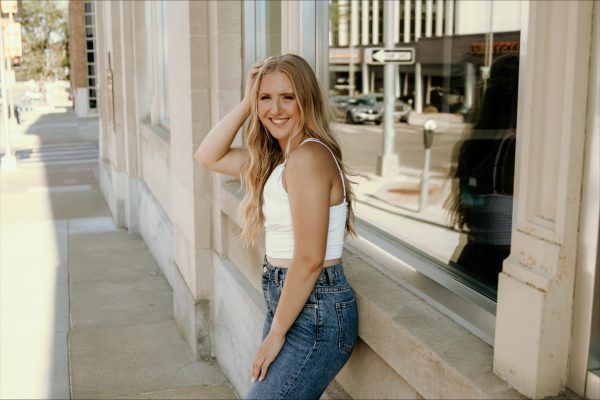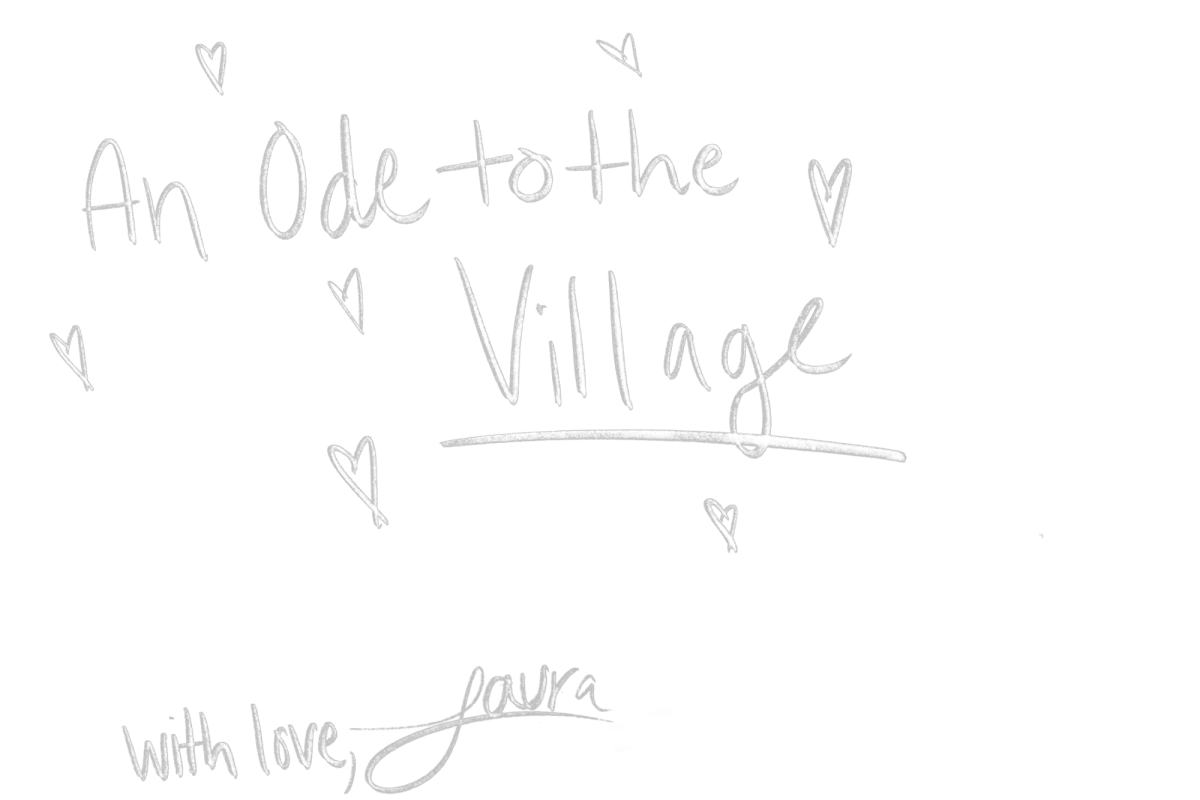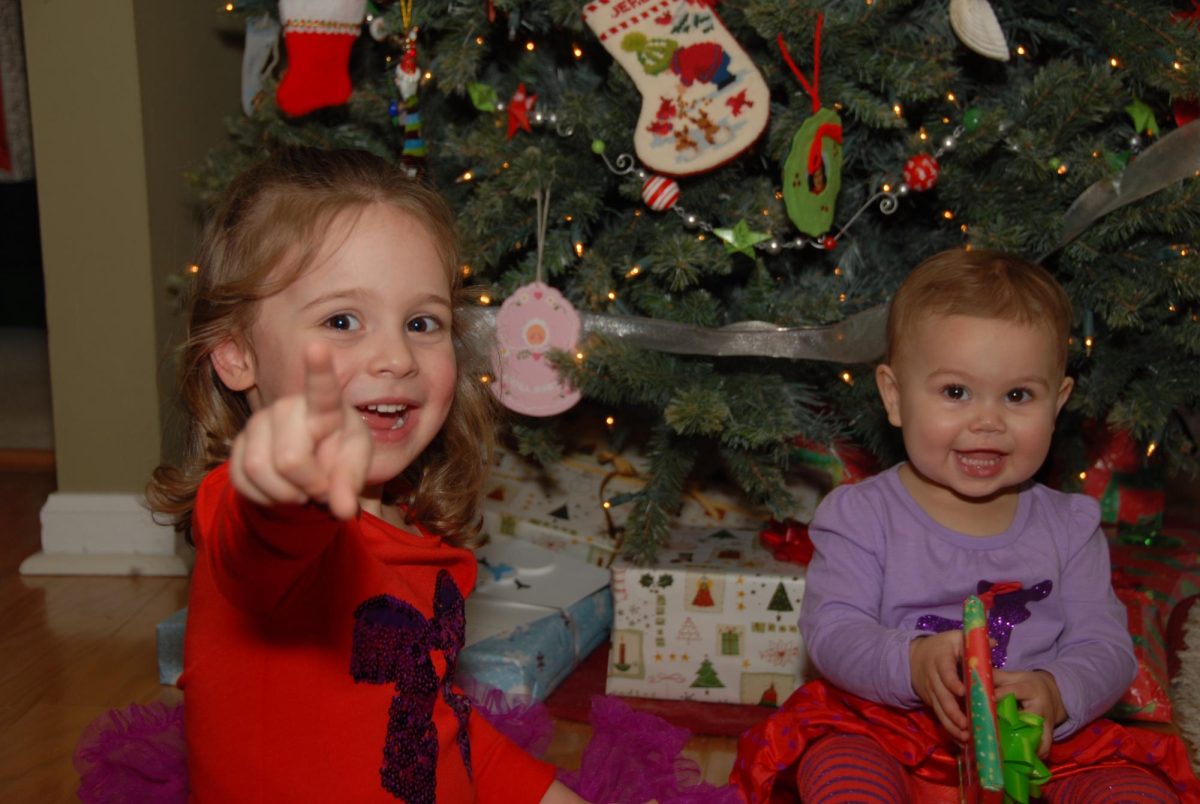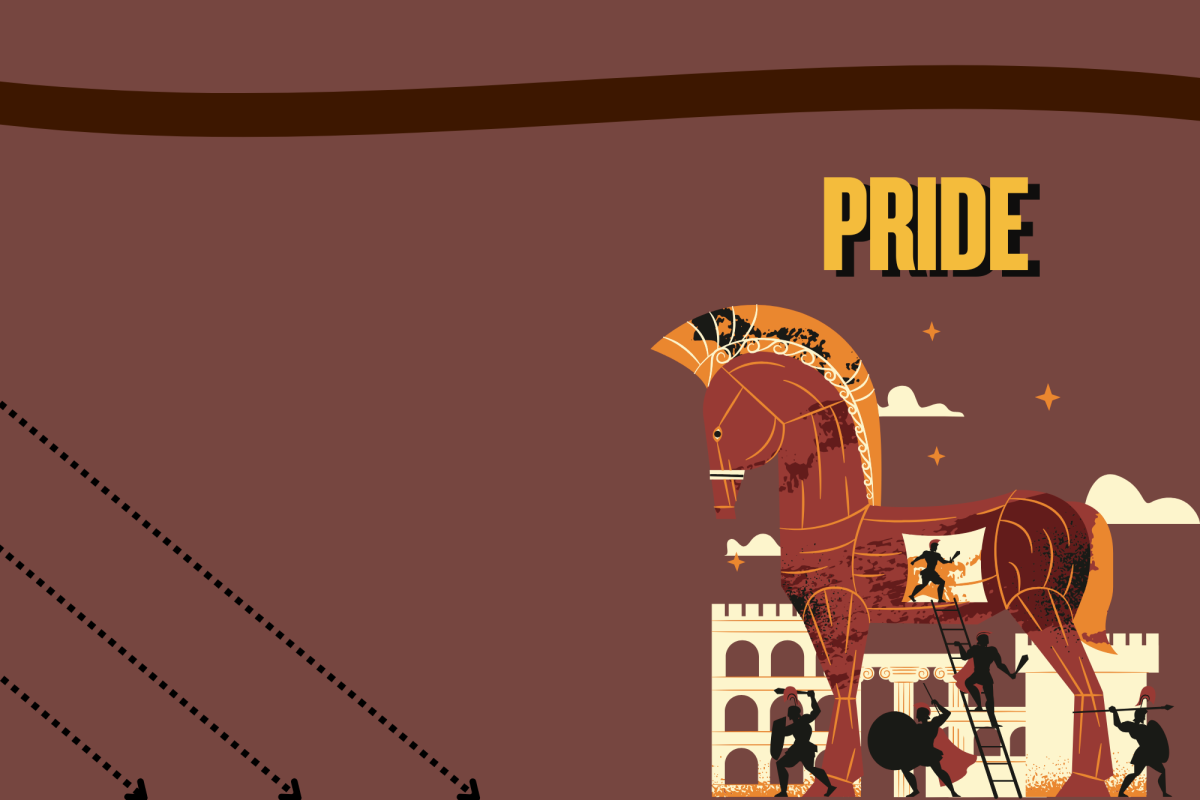It is a tale as old as time, a historical saying that has prevailed over generations and led cultures all over the world. The saying “it takes a village” has been around for decades, but among my recent findings it has begun to resurface. Where does this saying originate? What does it truly mean? How does it remain true in people’s lives today? The story is so much more beautiful than one can imagine. These very four words may unlock a way of thinking that is crucial when it comes to navigating life at any age.
This story came about in no particular manner. As I read poems and short stories for class, listened to podcasts or had conversations with others, the saying “it takes a village” kept weaving into the topic at hand. I continued to hear it and, in turn, I became able to apply it to all aspects of life. While I understood the meaning of the saying, I wanted to know more. I began to wonder how this saying was even established.
The saying gained popularity in 1995 when the first lady at the time, Hilary Clinton, released a book titled, “It Takes a Village.” Her book was centered around parenting and ultimately displayed her hopes for children in America. The book explores the idea that society and community play a large role in shaping children. The publishing company, Simon and Schuster, wrote that this book “tells the heartwarming and universal story of a diverse community coming together to make a difference.” Clinton’s book, “It Takes a Village” was raved about by many and in a time of change brought about a different view on raising children. While Clinton’s book gave rise to the saying, “it takes a village” originally stems from an African proverb that states that it takes a community of people (a “village”) to provide safety, health and happiness for children as they grow. The said “village” can thoroughly support a child thus greatly setting them up to flourish as they grow. Similar sayings that mean relatively the same can be found in many different cultures such as from Nigerian Igbo, Lunyoro, Kijita and Kihaya.
Nigerian Igbo: “Oran a azu nwa,” meaning “it takes a village or community to raise a child.”
Lunyoro: “Omwana takulila nju emoi,” meaning “a child does not grow up in a single home.”
Kijita: “Omwana ni wa bhone,” meaning “regardless of a child’s biological parents, its upbringing belongs to the community.”
Kihaya: “Omwana taba womoi,” meaning “a child belongs not to one parent or home”
With such deeply rooted origins, this information opened up a whole new way of thinking and application of the saying itself. While the saying most definitely applies in aspects surrounding parenting, “it takes a village” can apply to each individual’s every day. The “village” is also needed in people’s lives as they continue to grow at any age. People need people. As cliché as it may sound, humans cannot do life alone, and in a way, we are not supposed to. Having a community not only makes life enjoyable, but it is what makes the world go round. As humans it can be difficult to accept and ask for help, and while independence is an admirable trait, so is cooperation and partnership. It is okay to ask for help. It is okay to lean on others. Life does not have to be tackled alone. It is my belief that we were all put on this earth to show up for ourselves but more importantly show up and to help others. The “village” is not only needed when someone is young. Life doesn’t get easier, you may as well not go through it alone.
Think of who you rely on. If you needed a ride to school, wanted help with homework, needed someone to confide in or had a problem that needed to be talked over, who are you going to? Your village consists of so many amazing people. From parents to teachers, friends to siblings and even to coworkers, you have people who are there for you and who are rooting for you. I encourage every one of you to look around and to take into account your “village.”
I would like to end this piece by giving credit to my “village.” Anyone who has met me knows that I am as stubborn and independent as ever. It is difficult for me to allow others to help me in difficult and stressful situations, but I also have come to realize that going through life being totally independent is not all that it is chalked up to be. Through researching this story, I have been able to see how many amazing people I am blessed to have in my life. I think of my amazing parents who have supported me, no matter what, and who have shown me what true love looks like. My older sibling who is my favorite person to talk to, a role model I look up to and the person who I strive to have even an ounce of their determination and work ethic. I think of my best friends who have continuously shown up for me, even at my lowest. I think of my coworkers who are always cheering me on and letting me know I can call on them whenever I am in need. My teachers who push me, who give me grace when I am in a time of need, and inspire me to one day become just like them. Now, while I could list so many more, I think you get the gist. I hope my list allows you to think of even more people who make up your own “village.” I am forever grateful that I don’t have to go through life alone. So, to everyone who is in my life and who has ever shown up for me, I want you to know that you are seen and that you too are not alone. Thank you for being a part of my “village.”
Categories:
An ode to the village
March 19, 2024
More to Discover
About the Contributor

Laura Heckenlaible, Editor-in-Chief
Laura Heckenlaible is a senior, third-year staff writer and Editor-In-Chief for the Statesman. Heckenlaible is in ENHS and also serves as vice president of NHS. When she is not editing stories or volunteering, you will most likely find her running on the bike trails with her best friends who also double as her SFLXC teammates. Besides training and school, Heckenlaible loves going to work where she spends her time making bagels and gossiping with her coworkers. She is always down for cold brew from Starbucks, watching the sunset or a date with her bed and her favorite movie, A Cinderella Story featuring Hillary Duff. If you see her in the halls, do not be afraid to say hi; she is probably the least intimidating person ever.









